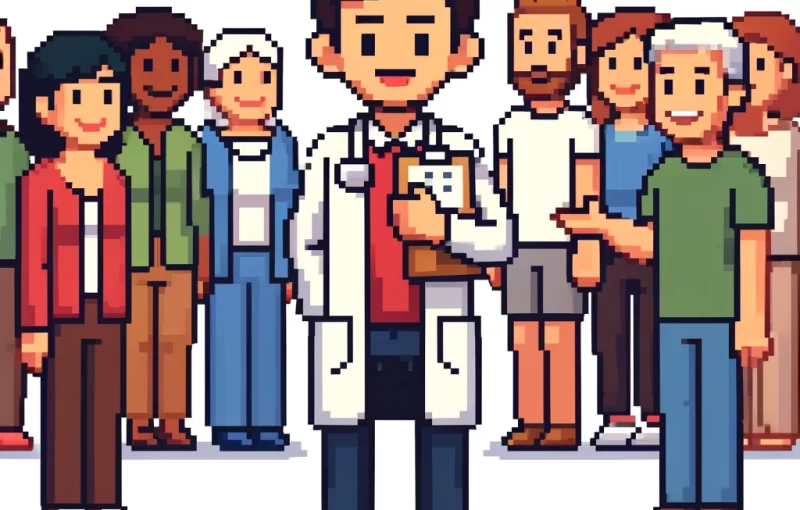
The Unsung Heroes of Health Care: Community Health Workers Revolutionizing Health Equity and Care
by Jon Scaccia April 17, 2024In a healthcare landscape where high-tech innovations often grab the spotlight, there’s a group of unsung heroes making a profound impact: Community Health Workers (CHWs). In the United States, these frontline public health workers have been bridging the gap between marginalized communities and healthcare services for over 70 years. The recent scientific review, shedding light on CHWs’ significant contributions, offers a compelling narrative of their journey, their struggles, and their triumphs in healthcare.
Who Are Community Health Workers?
Imagine a healthcare professional who’s not just trained in delivering healthcare but also deeply embedded in the community they serve. That’s a CHW. They understand the intricate weave of social and cultural threads because they share the same fabric. These workers aren’t just healthcare providers; they are educators, advocates, and trusted confidantes, delivering care that’s culturally competent and highly personalized.
The Evolution and Impact of CHWs in the U.S.
From the 1950s grassroots efforts by Indigenous workers to the recent amplification due to the COVID-19 pandemic, CHWs have been at the forefront, especially in under-resourced communities. Their role has been crucial in managing chronic conditions, improving access to preventive care, and reducing healthcare costs. More significantly, they have been instrumental in addressing social determinants of health – those environmental, economic, and social factors that significantly influence health outcomes.
The CHW Effectiveness: Evidence and Outcomes
The review comprehensively demonstrates that CHW programs have led to significant improvements in health behaviors, clinical outcomes, and overall patient experience. This is particularly evident in chronic disease management, such as diabetes and hypertension, and in preventive health measures like cancer screenings. Moreover, the integration of CHWs into healthcare systems has shown to reduce healthcare costs, underscoring their role in creating a more efficient and equitable healthcare system.
Challenges and Future Directions
Despite their success, CHWs face considerable challenges, mainly regarding sustainable financing and recognition within the broader healthcare system. As we look to the future, there is a pressing need for consistent funding models and greater incorporation of CHWs in policy-making and program-planning processes.
The Road Ahead: Integrating CHWs into the Healthcare Fabric
To maximize CHWs’ potential, the healthcare system must embrace them not as ancillary staff but as integral components of the health workforce. This involves adopting sustainable funding models, providing standardized training and certification, and ensuring their voices are heard in healthcare policy discussions.
Conclusion: Celebrating the CHWs
CHWs, with their unique blend of community insight and healthcare expertise, are vital in navigating the complex intersection of social justice and healthcare. As we move forward, it’s crucial to acknowledge their role, understand their challenges, and harness their potential to create a more equitable and effective healthcare system.
Engage With Us!
We invite you to share your thoughts and experiences. Do you know a CHW or have you benefited from their services? Share your stories in the comments below!
Join the Movement of Health Innovators – Subscribe for Weekly Insights!
Step into the forefront of public health innovation with ‘This Week in Public Health.’ Every edition brings you closer to the latest developments in research, community health, and advocacy. It’s more than a newsletter – it’s your resource for becoming an informed and active participant in the health community. Subscribe for free and join a network of individuals dedicated to making a lasting impact in public health!
About the Author
Jon Scaccia, with a Ph.D. in clinical-community psychology and a research fellowship at the US Department of Health and Human Services, is renowned for his expertise in public health systems and quality programs. He specializes in implementing innovative, data-informed strategies to enhance community health and development. Jon’s significant contribution to public health is underscored by his creation of the R=MC² readiness model, which aids organizations in effectively navigating change. And he’s done a ton of work studying all the great ways that community health worker can impact their community!
Leave a Reply